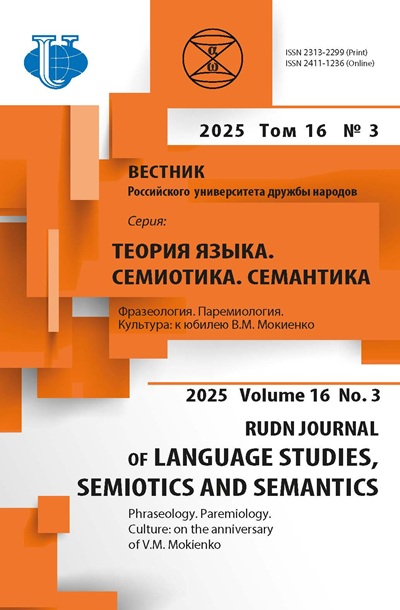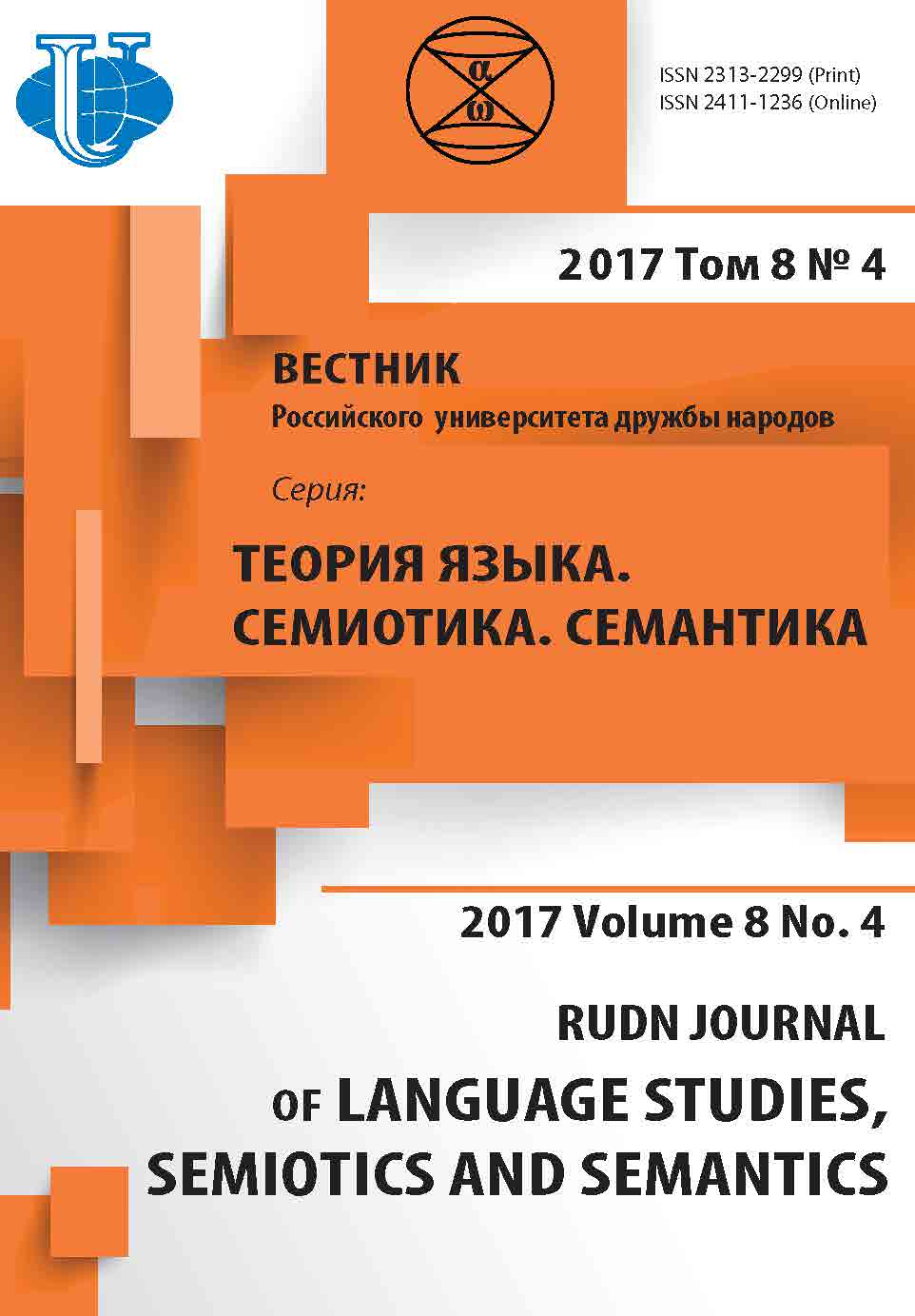«СВОИ» versus «ЧУЖИЕ»: ДИНАМИКА РАЗВИТИЯ И МАНИПУЛЯТИВНЫЙ ПОТЕНЦИАЛ КОНЦЕПТА ХОЛОДНАЯ ВОЙНА В АНГЛОЯЗЫЧНОМ ПОЛИТИЧЕСКОМ ДИСКУРСЕ
- Авторы: Чес НА1, Ковалев НА1
-
Учреждения:
- Московский государственный институт международных отношений МИД России
- Выпуск: Том 8, № 4 (2017)
- Страницы: 1171-1177
- Раздел: СТАТЬИ
- URL: https://journals.rudn.ru/semiotics-semantics/article/view/17995
- DOI: https://doi.org/10.22363/2313-2299-2017-8-4-1171-1177
- ID: 17995
Цитировать
Полный текст
Аннотация
В статье представлены результаты комплексного исследования структуры и функционального потенциала концепта ХОЛОДНАЯ ВОЙНА на материале публикаций американской и британской качественной прессы с 1948 по 1953 годы и с 2014 по июль 2016 года. Методами когнитивной лингвистики была проведена концептуальная реконструкция моделей, характерных для указанных исторических периодов; сопоставительный анализ моделей концепта и анализ их текстовых реализаций позволили сделать ряд выводов относительно динамики развития и прагматического потенциала концепта ХОЛОДНАЯ ВОЙНА. Полученные данные свидетельствуют о перспективности дальнейшего изучения механизмов концептуализации и вербализации сложных явлений общественно-политической сферы деятельности в условиях новой геополитической реальности.
Ключевые слова
Об авторах
Н А Чес
Московский государственный институт международных отношений МИД России
Автор, ответственный за переписку.
Email: eng7@mgimo.ru
Чес Наталья Анатольевна, кандидат филологических наук, доцент Кафедры английского языка № 1 Московского государственного института международных отношений МИД РФ; научные интересы: когнитивно-дискурсивная прагматика, лингвокогнитивные механизмы манипулятивного воздействия в полимодальной коммуникативной среде, разработка прикладных аспектов современных когнитивно-дискурсивных исследований
роспект Вернадского, 76, Москва, Россия, 119454Н А Ковалев
Московский государственный институт международных отношений МИД России
Email: nikitakovalyov@yandex.ru
Ковалев Никита Александрович, аспирант, преподаватель кафедры английского языка № 6 Московского государственного института международных отношений МГИМО МИД РФ; научные интересы: когнитивная лингвистика, политическая лингвистика, исследования политического медиа-дискурса
роспект Вернадского, 76, Москва, Россия, 119454Список литературы
- Бабушкин А.П. Типы Концептов в лексико-фразеологической семантике языка. Воронеж: Издательство Воронежского государственного университета, 1996.
- Кубрякова Е.С., Демьянков В.З., Панкрац Ю.Г., Лузина Л.Г. Краткий словарь когнитивных терминов. М.: МГУ, 1996.
- Минский М. Фр еймы для представления знаний. М.: Энергия, 1979.
- Минский М. Остроумие и логика когнитивного бессознательного // Новое в зарубежной лингвистике. Вып. ХХIII. Когнитивные аспекты языка. М.: Прогресс, 1988. C. 52-92.
- Степанов Ю.С. Константы: Словарь русской культуры. М.: Языки русской культуры, 1997.
Дополнительные файлы












